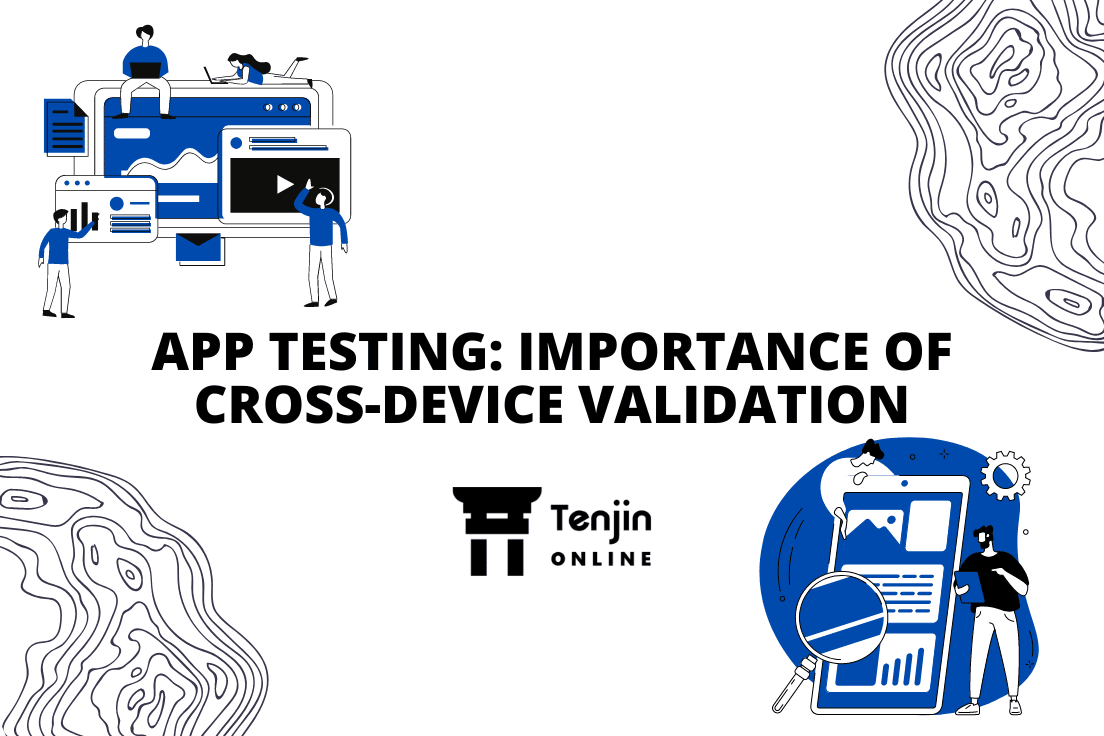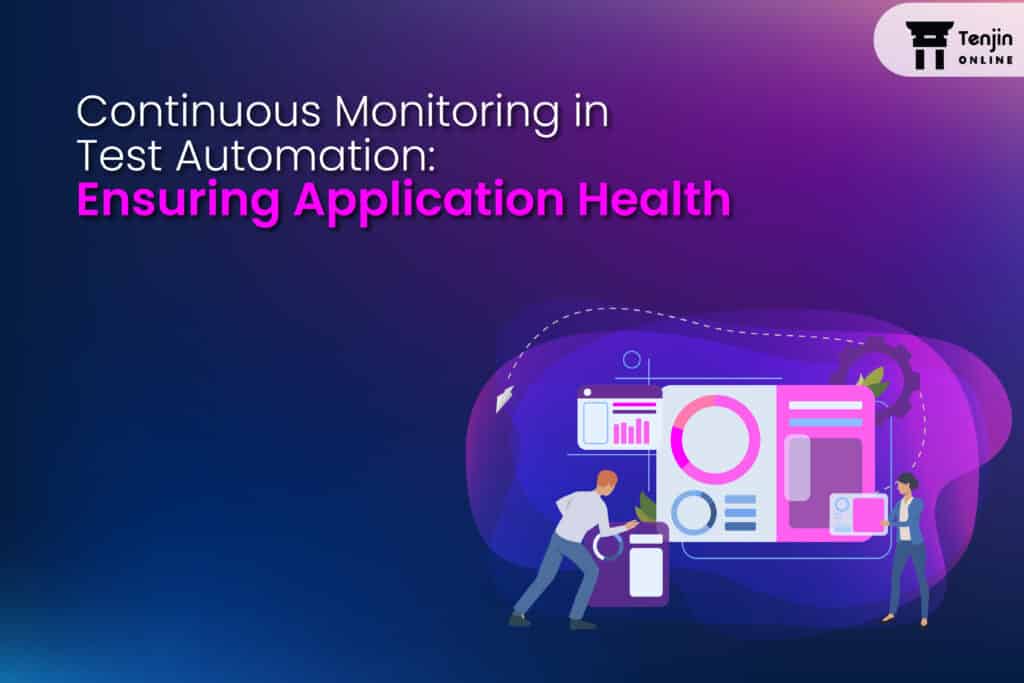
In today’s technology-driven world, the market is brimming with new gadgets that offer an unlimited choice to the end-users. With the wide choice of platforms, businesses are investing in developing smart solutions to ensure that users can access their websites or apps through any device they own. Failing to do so, the business may lose its customers which will eventually incur a huge loss to the company. Therefore, to sustain in today’s highly competitive world, it is crucial to develop solutions that are in sync with the requirements of real-world users.
Assume you have the ambition to provide the customers with the greatest e-Commerce app available. As the target audience is wide, you cannot confine your platform to a single pattern. The requirements of the users are diverse, some may use smartphone, while other may use tablets or website to shop; further, the screen size and resolution of all these hand-held devices may not be the same, similarly, the browsers and operating systems may not be the same for the web applications. To succeed in your business and attract more users you cannot limit yourself to an individual channel. To tackle these issues, cross-platform software development is the ideal solution that focuses on creating applications on various devices and operating systems.
When an application is developed in multiple platforms, it is vulnerable to numerous errors and defects. To ensure that the application is working perfectly across all the platforms, cross-platform testing should be performed. In this article, let’s us discuss more about cross-platform testing, recognizing system behavior across highly fragmented android ecosystem, and the increasing advancement in device farms.
Cross-Device Testing
The current trend offers a wide range of possibilities to use an app across various browsers, operating systems, and devices. The individual software development for each device, browser, configuration, screen size, resolution, etc., is not a feasible option. Such development process is outdated and time-consuming that involves huge investment and ample manpower. Cross-platform application development is developing a single app that can run on different operating systems, instead of building different app for different platform.
Cross-platform testing is the process of testing the cross-platform software. It is used to figure out how mobile applications and websites behave in different scenarios. Cross-platform testing aids in the identification of problems, such as compatibility, user experience, reliability, and functionality, which might differ across systems or configurations. Cross-platform testing is a crucial part of the software quality improvement process.
Below are some of the reasons why cross-platform software testing is critical:
- Ensures interface consistency across all the platform by detecting interface issues like incorrect alignment and inappropriate text wrapping
- A user-friendly GUI with simple and engaging design
- Consistency in verification mechanism like app may provide fingerprint authentication in the phone that support thumb print, while offer passcode or pattern authentication in the phones that don’t support thumb print
- Ensures to keep sub-optimal level of data storage option so that it is easily downloadable across different devices
- It helps you save money by detecting glitches early on
- App testing helps to avoid failures.
- Customer loyalty is guaranteed when the smartphone app is launched with high-end quality
- Customer retention is improved by testing
- Testing ensures that smartphone applications are stable and scalable
Android Fragmentation: How does it affect the system behavior across devices?
The enormously diverse Android device range and the OS versions usually cause inter-operability issues within the Android ecosystem, such issues are referred to as Android fragmentation. The open Android platforms are compatible with a wide range of devices, but the problem lies in getting the OS versions approved by the vendor, before it is installed in the device. The openness of the Android platform allows the vendors to make their own modifications such as adding a widget or themes to the OS versions.
The latest OS version of the Android platform are sometimes not compatible with many devices; hence, the device manufacturers prefer to continue with the older versions. This leads some of the devices to using the older version, even after 2-3 new OS version are released in the market. These Android fragmentation issues doesn’t guarantee the same system behavior across devices. Further, the slow adoption rate of latest OS versions is holding back the advancement in the mobile strategy.
The other issues associated with the Android fragmentation is the challenges faced by the developers. The different Android versions currently running in the market are KitKat (Latest), Jelly Bean (popular), Gingerbread, Ice Cream Sandwich, Lollipop, and the other older versions. With so many versions running simultaneously across different devices, it is difficult for the developers to cope up with the upgrading versions and handle the hardware integration services.
Android fragmentation affects the enterprises too; enterprise adoption is difficult for OS version upgrade as it becomes difficult for the company to support the OS versions across all the devices they manufacture. This affects the mobile strategy of the organization as it makes the choice of OS versions difficult.
Even though, Android fragmentation affects the system behavior across devices and enterprises, the openness of the Android platform offers unlimited possibilities to end-users for customization, which makes them popular.
What are Device Farms? Why does it still continue to grow?
A device farm, also known as a device Cloud, is a testing environment where the testing is carried out in real-world scenarios involving actual phones and tablets, interacting with the operating system, where the remote access of devices can be tested on real-time basis. It provides links to both new and legacy device models from a variety of manufacturers. Furthermore, the computers have pre-installed operating systems and browsers.
There are a number of private Cloud service providers who have the option of device farms. One can use the device Cloud to support the automation testing framework and test the app in huge collection of real devices on real-time basis. One can choose the required test scenario, the device Cloud will put it against the choice of real-world devices and facilitate the access to the local host, and the results of the performance and other defects are displayed within no time. With the ease, cost-effectiveness, accuracy, and efficiency they offer, device farms are gaining immense popularity. They form the future of cross-platform testing; they are estimated to further grow and will not fade away from the market anytime soon.
Device farms are intended for developers, testers, and customer support representatives who are designing, testing, and promoting smartphone applications in order to improve app efficiency. Application consistency is becoming extremely critical with the growing number of software types, differences in firmware and OS variants, carrier, and vendor customizations, and reliance on remote servers and other applications. Device farm accelerates the development process by running experiments on various platforms, allowing engineers, testers, and support personnel to execute automated tests as well as manual activities, such as reproducing consumer problems, exploratory testing of new features, and performing manual test plans. Device farms often save money by removing the need for internal device labs, lab managers, and automation infrastructure development.
Benefits of device farm:
- Device farm embraces native and hybrid Android, iOS, and mobile applications, as well as cross-platform apps built with PhoneGap, Titanium, Xamarin, Unity, and other frameworks
- The variety of devices available will assist you in expanding platform reach
- Device farm enables multiple test executions at the same time, thereby, speeds up testing and reduces cost
- Defect and fix issues faster
- Test case customization available
- Advanced integrations like AI and ML possible with development workflow
- There is no need to manage devices because device farms do it
- It is less costly than doing it yourself and no overhead
- Scaling the tests is better in the cloud than on-premises
- It is accessible from everywhere, which is important for global teams
- Device farms have the capability to revolutionize the testing process and speed up development. Therefore, a device farm approach can provide huge benefits
The future of software testing
Through incorporating mobile app testing into your app strategy, you’ll be able to focus on data-backed, actionable feedback to consistently improve your app’s interface and, as a result, improve your app’s key metrics, such as customer interaction, retention, security, and monetization. Using your test findings to improve every aspect, operation, and function of your app will help you increase sales at any user touchpoint and, in the end, streamline the entire customer journey. The current and future trends in software testing looks quite promising. Automation testing, CD/CI, and data-driven DevOps have already revolutionized the testing process, thereby delivering quality software. The rise of AI, ML, and predictive learning are further improving the QA process and ensure to deliver flawless working software with reduced time, effort, and cost.


Leave a Reply
You must be logged in to post a comment.